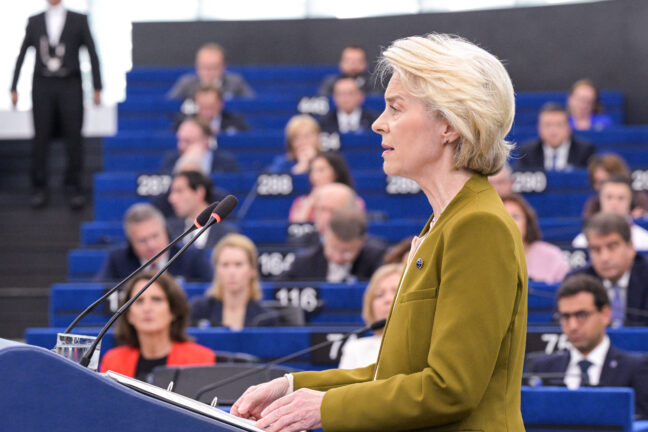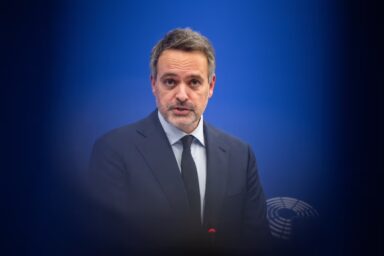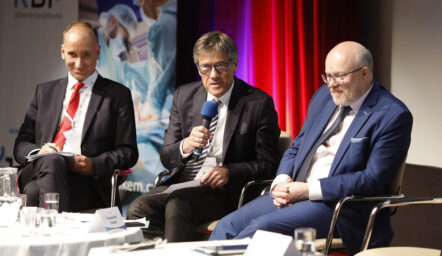European Commission President Ursula von der Leyen delivered her 2025 State of the Union Address in Strasbourg on Wednesday, 10 September, setting out an ambitious vision for Europe’s digital and technological future. The plans include new AI gigafactories as well as deregulation agenda.
Against a backdrop of rising geopolitical tensions, von der Leyen framed her speech as Europe’s “independence moment”. For the digital world, it signals the bloc’s intent to assert technological sovereignty, in a particularly relevant moment, over recent threats of retaliation from the United States’ in response to EU actions against Big Tech.
Eyeing Australian social media ban for under-16s
Among the most prominent announcements was a potential ban on children’s access to social media. “Parents, not algorithms, should be raising our children”, Ms von der Leyen said, highlighting the risks posed by a “tsunami of Big Tech flooding family homes”. She warned that some algorithms exploit children’s vulnerabilities to foster addiction.
Parents, not algorithms, should be raising our children. – Ursula von der Leyen, President of the European Commission
To address these concerns, the Commission plans to establish an expert panel by the end of the year to advise on potential age limits for social media access, citing Australia’s recent ban on under-16s as a reference point. Last year, the Australian federal government amended the Online Safety Act to prevent children younger than 16 from having social media accounts. The legislation will come into effect in full by December 2025.
Civil society organisations welcomed the focus on child safety but criticised what they viewed as a shift of responsibility from platforms to parents. Eurochild, a child rights network, said the approach goes “against the EU’s previous efforts under the Digital Services Act”, urging the Commission to prioritise empowerment, safety, rather than “disproportionate limitations on children’s rights”.
5Rights, an NGO working for children’s digital rights, also weighed in, arguing that policy must address platform design and algorithmic risks. “We look forward to supporting the Commission as it uses the tools already at its disposal—notably the DSA and the AI Act—to enforce corporate accountability for children’s rights, and to work out what more needs to be done”, said their Executive Director, Leanda Barrington-Leach.
You might be interested
AI gigafactories in sixteen member states
Beyond social media, Ms von der Leyen used her speech to advance Europe’s push for AI sovereignty. “We are massively investing in European AI gigafactories”, she said, referring to the plans to build €20bn to create up to 5 AI gigafactories, expected to host over 100,000 advanced processors and support innovation across sectors ranging from healthcare to defence. According to the Commission, 76 expressions of interest have been received across 16 Member States for 60 potential sites to set up the factories.
“A European AI is essential for our future independence” – Ursula von der Leyen, President ofthe European Commission
“A European AI is essential for our future independence”, Ms von der Leyen noted. To achieve that goal, she said that the Commission had called on the private sector to join forces and that “the response was overwhelming.” Later during the day, she met CEOs from Europe’s largest tech companies to receive their European AI & Tech Declaration, a commitment launched the day before by industry leaders to co-invest in European AI and critical technologies, support regulatory reforms, and strengthen the bloc’s digital sovereignty. Thirty-nine European CEOs have already joined.
Cloud, AI, and quantum
Complementing the gigafactory initiative, the Commission is advancing the Cloud and AI Development Act and the Quantum Sandbox, alongside measures to support startups under the European Innovation Act. Von der Leyen also highlighted plans for the so-called 28th regime, a voluntary, EU-wide legal framework allowing innovative companies to operate under a single set of rules, rather than the differing national laws of the 27 Member States, making it easier to scale within Europe.
A centrepiece of the Commission’s investment strategy is the Scaleup Europe Fund, a multi-billion-euro, privately-managed vehicle designed to address the funding gap for late-stage technology companies in AI, biotech, quantum, and clean tech. Set to launch in 2026, the fund will, according to Commission President, “help make major investments in young, fast-growing companies in critical tech areas, because we want the best of Europe to choose Europe”.
Simplification calling
Ms von der Leyen returned to her deregulatory agenda, framing it as a way to ease burdens on companies. “Less paperwork, less overlaps, less complex rules”, she said, pointing to ongoing omnibus initiatives expected to save €8bn annually.
Critics, however, warned that deregulation could come at the expense of social, labour, and digital rights. Ahead of the speech, 470 civil society organisations cautioned that the Commission’s push to simplify EU rules risks undermining years of progress in environmental and social protections. EDRi, a digital rights organisation, called deregulation efforts “an act of self-sabotage which must be reversed”.











